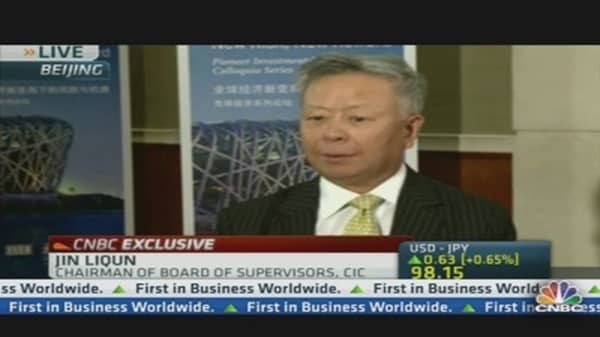China's economy will grow at sustainable levels and there is no need for panic about the level of growth, Jin Liqun, chairman of China's $482 billion sovereign wealth fund China Investment Corp, told CNBC on Wednesday.
"I don't think people need to panic, China will continue to grow at sustainable levels. The government target will be met without much difficulty," said Jin.
China's first quarter economic growth figure came in at 7.7 percent which was below expectations and lower than the previous quarter's 7.9 percent growth, raising questions about the strength of the rebound in the world's second largest economy. The government's gross domestic product growth target for 2013 is 7.5 percent.
"We aim at improved quality of growth. The Chinese economy will continue to be instrumental to the rest of the [global] economy by its strong sustained growth. But of course, something will have to be done on the other side," he added.
(Read More: Not Concerned About Hard Landing in China: IMF)
Local Government Debt Fears
Jin's comments come amid rising concerns over China's excessive levels of local government debt, following reports that a senior Chinese auditor had said local government debt was "out of control," with the potential to spark an even larger financial crisis than the U.S. housing crash.



.530x298.jpg?v=1366176043)

